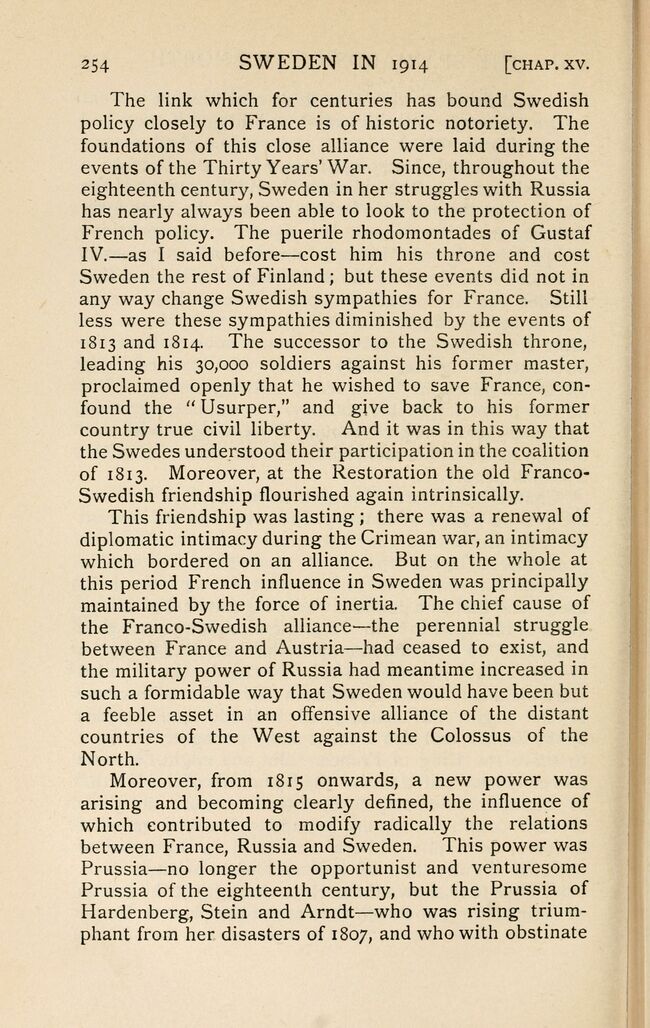
Full resolution (JPEG) - On this page / på denna sida - XV. Sweden in 1914

<< prev. page << föreg. sida << >> nästa sida >> next page >>
Below is the raw OCR text
from the above scanned image.
Do you see an error? Proofread the page now!
Här nedan syns maskintolkade texten från faksimilbilden ovan.
Ser du något fel? Korrekturläs sidan nu!
This page has never been proofread. / Denna sida har aldrig korrekturlästs.
254
SWEDEN IN 1914 [chap. xv.
The link which for centuries has bound Swedish
policy closely to France is of historic notoriety. The
foundations of this close alliance were laid during the
events of the Thirty Years’War. Since, throughout the
eighteenth century, Sweden in her struggles with Russia
has nearly always been able to look to the protection of
French policy. The puerile rhodomontades of Gustaf
IV.—as I said before—cost him his throne and cost
Sweden the rest of Finland; but these events did not in
any way change Swedish sympathies for France. Still
less were these sympathies diminished by the events of
1813 and 1814. The successor to the Swedish throne,
leading his 30,000 soldiers against his former master,
proclaimed openly that he wished to save France,
confound the " Usurper," and give back to his former
country true civil liberty. And it was in this way that
the Swedes understood their participation in the coalition
of 1813. Moreover, at the Restoration the old
Franco-Swedish friendship flourished again intrinsically.
This friendship was lasting; there was a renewal of
diplomatic intimacy during the Crimean war, an intimacy
which bordered on an alliance. But on the whole at
this period French influence in Sweden was principally
maintained by the force of inertia. The chief cause of
the Franco-Swedish alliance—the perennial struggle
between France and Austria—had ceased to exist, and
the military power of Russia had meantime increased in
such a formidable way that Sweden would have been but
a feeble asset in an offensive alliance of the distant
countries of the West against the Colossus of the
North.
Moreover, from 1815 onwards, a new power was
arising and becoming clearly defined, the influence of
which contributed to modify radically the relations
between France, Russia and Sweden. This power was
Prussia—no longer the opportunist and venturesome
Prussia of the eighteenth century, but the Prussia of
Hardenberg, Stein and Arndt—who was rising
triumphant from her disasters of 1807, and who with obstinate
<< prev. page << föreg. sida << >> nästa sida >> next page >>